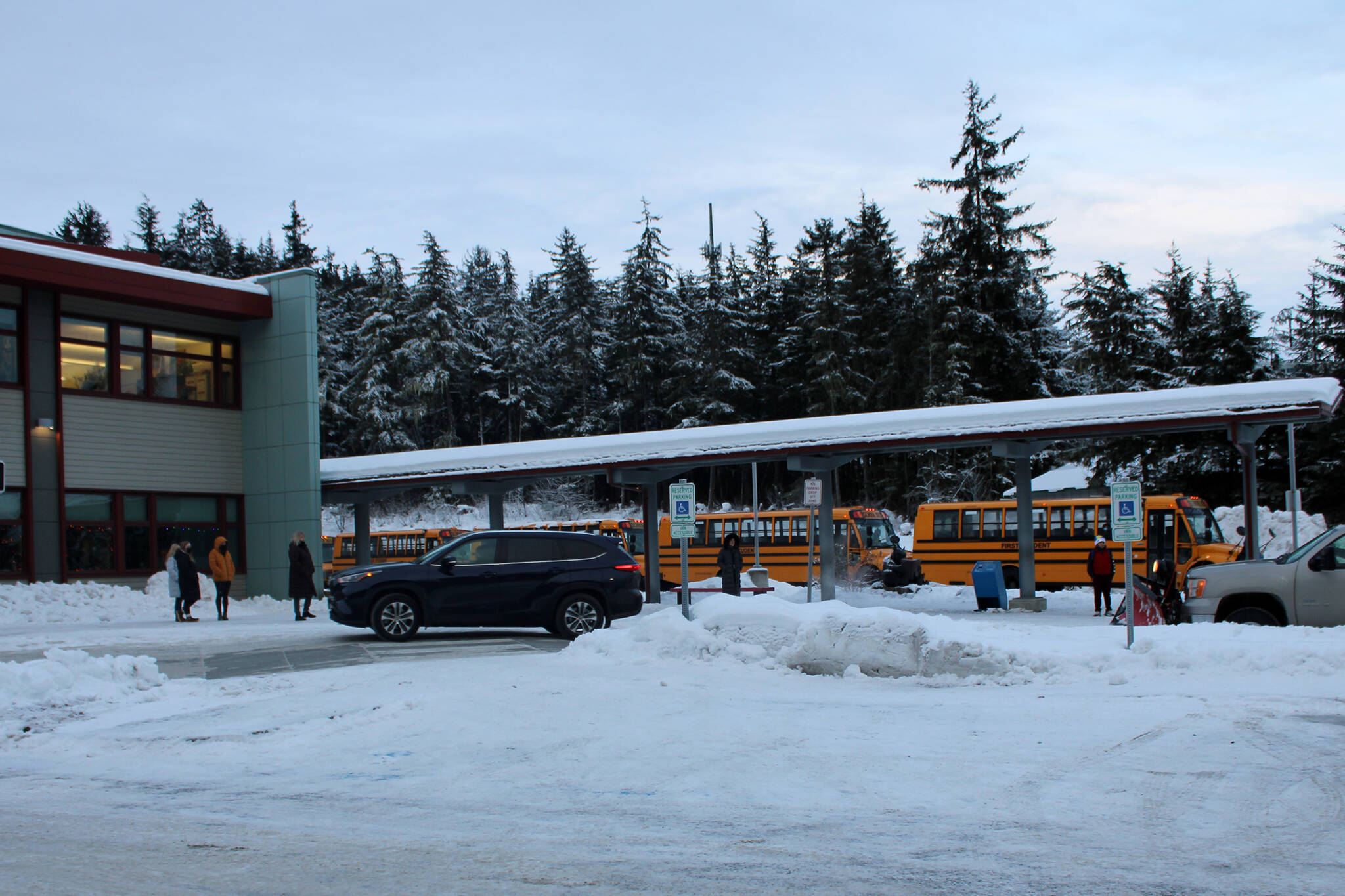This article has been updated to reflect that the budget proposed for Fiscal Year 2023 is an increase over the budget proposed last year.
City and Borough of Juneau and Juneau School District officials are busy digesting the proposed state budget Gov. Mike Dunleavy unveiled at a Wednesday afternoon news conference.
The proposed budget totals $4.6 billion in unrestricted general funds, $912 million in designated general funds, $792 million in other state funds, and $4.6 billion in federal funding, according to figures released by the governor’s office, with the total of all funds at $10.9 billion.
While the proposed budget is an increase from the governor’s proposal last year and lacks new revenue sources–which city officials have called for–some of the budget’s features could mean good news for Juneau.
At the top of that list is a measure for the state to fully fund school bond debt reimbursement for school construction bonds passed in 2014 and earlier.
City Manager Rorie Watt said he was “heartened that 100% school bond debt is included,” in a Thursday morning email.
Watt said he was “glad that the Administration is proposing to meet the state’s duty to provide for education.”
School bond debt is a program that allows municipalities to renovate eligible schools by reimbursing about 70% of the project’s cost if it is approved by a referendum. This type of debt funding was used to renovate Sayéik: Gastineau Community School and Auke Bay and Harborview elementary schools in Juneau.
In 2019, a proposed budget cut millions of dollars from the program. Local officials have been keeping a close eye on developments because of the budget implications to the city and school district if the state fails to pay or reduces its portion, which has been the case the last few years.
“If the legislature funds 100% of SBDR in FY23, that is about $3,369,000 to us,” said Sam Muse, CBJ’s controller. “If it is funded at 100% again in FY24 and FY25, that is $1,646,000 and $1,009,000, respectively.”
Muse said the state’s school debt obligations end after fiscal year 2025.
Carole Triem, chair of CBJ’s finance committee, said she was still digging through the document as of Thursday afternoon. But, she called out the school bond reimbursement level as a potential bright spot.
“I wish we could see the state fulfill its school bond debt reimbursement obligation more than once every four years,” Triem said. “Getting it in an election year is better than nothing, I guess!”
Watt said he also saw good news in the proposal to fund a statewide general obligation bond proposal.
“Glad the state us able to contemplate funding of capital projects,” Watt said. “I’m sure the legislature will have a spirited debate on that topic.”
No new long-term revenue
While local officials expressed optimism around the school bonds, the lack of additional long-term revenue sources could cause some concern.
In his proposal, Dunleavy does not call for new revenue. According to the governor’s office, the budget is balanced and does not require new revenue–primarily thanks to an influx of federal funds and rising oil revenues.
Locally, city leaders have been discussing the state’s long-term need for revenue and weighing the revenue options put on the table over the summer during special sessions, including a statewide sales tax or an income tax.
Earlier this year, city officials entertained a resolution to encourage the state to develop a long-term revenue plan but to avoid a statewide sales tax. City assembly members stopped short of passing the resolution last month.
The day before the governor announced his proposed budget, city Assembly members adopted an updated version of the resolution encouraging state leaders to adopt and implement a long-term fiscal plan that “fully funds essential government services” and acknowledges that new broad-based revenues are needed to make that happen.
[Dunleavy announces package of public safety measures]
“I am not surprised that a statewide sales tax was not included,” Watt said. “I assume this is because of the Administration’s oil revenue forecasts. That said, I do believe that the state still needs a long-term fiscal plan that allows it to fund necessary state services.”
According to the resolution the assembly passed, adopting a long-term plan without adding revenue sources “perpetuates Alaska’s over-reliance on oil revenue and makes future budgets highly subject to fluctuation in oil price and production.”
That could shift the burden to provide government services such as education to local municipalities, the resolution reads.
The resolution discourages the state from implementing a statewide sales tax and encourages the adoption of state income tax instead. It also urges using earnings from the permanent fund “responsibly and sustainably to fully fund essential government services.”
When the CBJ Assembly first considered the resolution in November, Watt said that sales tax is traditionally a municipal revenue source and that cities specifically tailor the tax rate to prevent harming local businesses. He said that adding a state layer of taxes could drive up costs for local businesses, force cities to raise property taxes to generate new revenue or cut municipal services.
In Monday’s resolution, city Assembly members formally embraced a state-wide income tax.
“An income tax would tax all income earned in Alaska allowing the state to collect from both resident and non-resident income earners that now benefit from government services without financially contributing toward those services,” the resolution reads.
• Contact reporter Dana Zigmund at dana.zigmund@juneauempire.com or 907-308-4891.

